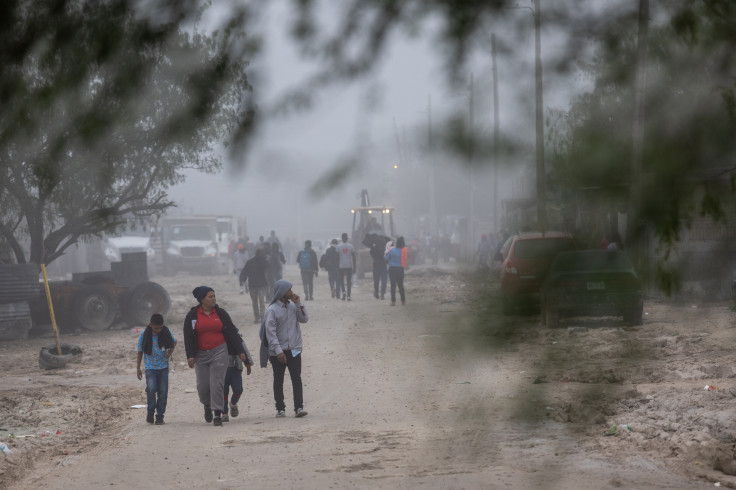
Border crossings have plummeted during the first weeks of the Donald Trump administration, and while the government is highlighting this as an achievement, an expert said the scenario could be temporary.
Speaking to the Wall Street Journal, Dara Lind, a senior fellow at the American Immigration Council, said that such decreases are not unusual after administration changes, as migrants take a "wait-and-see" approach during the first months to reassess policies implemented and then make a decision.
"Only after there's a little bit of time, people see what the policy is, people who make it over can report back on whether it was successful," Lind added, also warning that "smugglers can find new routes and then those numbers can rebound." She said the recent bout of cold weather can also be a factor. The Washington Post reported this week that an estimated 300,000 migrants are in Mexico waiting to see how U.S. policies unfold.
That assessment could be seen in a migrant shelter in Hidalgo, which this month was operating beyond its capacity. Casa del Migrante was built to accommodate around 150 people at a time—mostly women and children—with a steady flow of migrants arriving and departing daily. However, since Trump's inauguration, the flow has stopped, at least in one direction—people are arriving, but very few are leaving. With deported Mexican nationals increasingly requesting its services, the shelter was holding about 250 migrants, including 80 children, in early February.
Mayra Guadalupe Garza, a volunteer known as "Mayra Migrantes" due to her dedication to the migrant communities in Reynosa and Matamoros, told The Latin Times that every migrant shelter in the city is facing similar problems since Trump's first executive orders left thousands of asylum seekers in limbo.
As Garza and other volunteers try to respond to immediate needs first, they're also trying to help those who have nowhere to go and want to keep waiting for a legal pathway to enter into the United States. They hope to secure temporary housing and jobs for some families so that they don't have to live in shelters indefinitely. "I can't promise them anything," she said. "But I want to help them find a way to keep going," she said.
Denise Gilman, co-director of the Immigration Clinic at the University of Texas, also told the Latin Times she predicts a short-term pause in border crossings as migrants wait to see how the situation develops.
However, she thinks that crossings will likely resume in greater numbers as migrants adapt to the new policies. "Those who had CBP One appointments will likely decide to cross without authorization rather than waiting in limbo. The system we've created essentially encourages irregular crossings and travel to the U.S. interior," she said.
This scenario, Gilman said, also strengthens drug cartels running human smuggling businesses at the border. "[Migrants] will take more hidden and dangerous routes to evade detection. This increases the power of organized crime and leaves migrants more vulnerable to exploitation."
In the meantime, the border is the quietest it's been in a while. The Washington Post reported this week that several hundred active-duty soldiers arrived in Del Rio, Texas, in January following President Donald Trump's declaration of an invasion and his subsequent order to deploy troops to the southern border. However, they don't have much to do.
Border Patrol agents in the Del Rio sector and the nearby city of Eagle Pass have been apprehending fewer than 50 people per day since late January, a stark contrast to 2023, when as many as 5,000 migrants crossed the Rio Grande every day. At the national level, unlawful border crossings have dropped to levels last seen in 2019.
For now, Texas migrant shelters remain largely empty, and border nonprofits have redirected their resources to Mexico. Such a case took place in San Diego, after the Jewish Family Service said it will shut down and lay off 115 employees after six years due to "changes in federal funding and policy."
© 2025 Latin Times. All rights reserved. Do not reproduce without permission.





